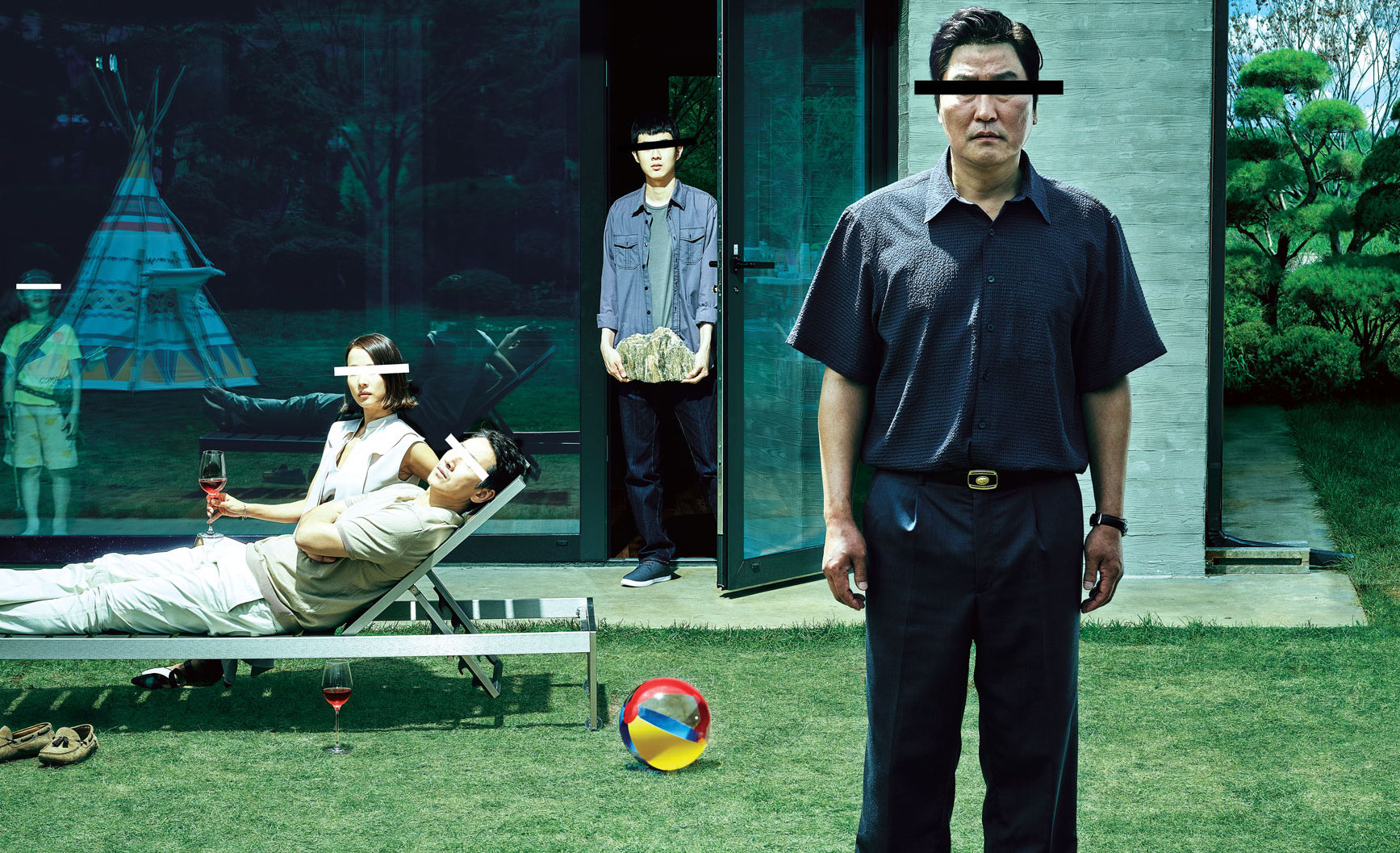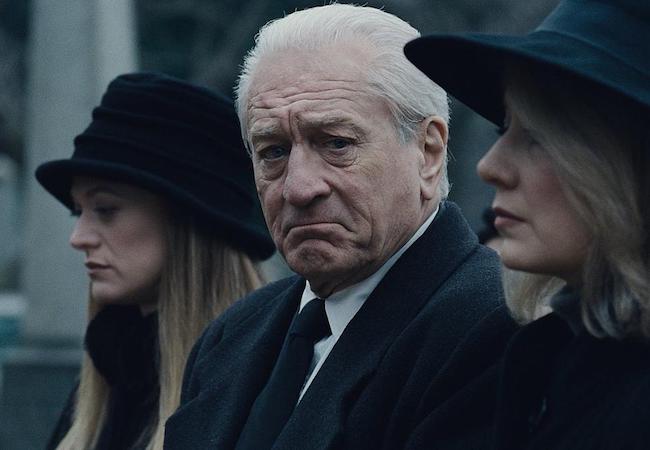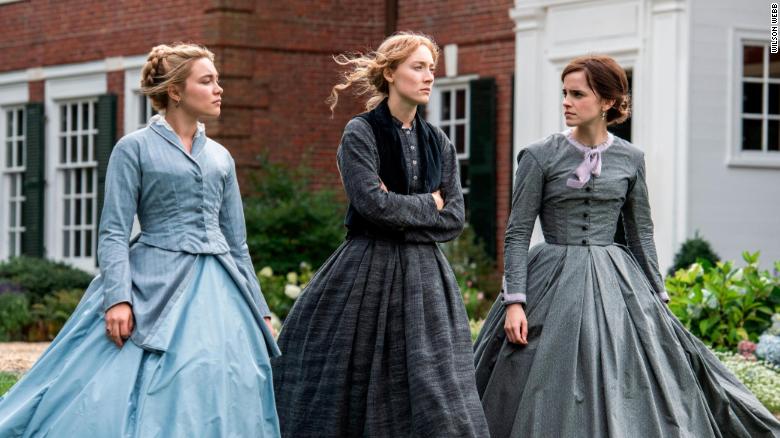
In light of the film award season coming to an end, it seems an appropriate time to pass on a few recommendations for the standout pictures of 2019. And thankfully there is quite a lot to choose from, with the previous year boasting one of the most packed release schedules in recent memory. Many of the most prominent working auteurs helmed standout projects, with new features from Martin Scorcese (The Irishman), Quentin Tarantino (Once Upon a Time in Hollywood), Noah Bombach (Marriage Story), Rian Johnson (Knives Out), Robert Eggers (The Lighthouse), the Safdie brothers (Uncut Gems), Bong Joon Ho (Parasite), Greta Gerwig (Little Women), Ari Aster (Midsommar), Sam Mendes (1917), and many more. There were also some relative newcomers with Lulu Wang (The Farewell), Olivia Wilde (Booksmart), and Joe Talbot (The Last Black Man In San Francisco) making a splash among others. While there were quite a few movies worth talking about, let’s step through three of the most exemplary movies from the last year.
3. The Irishman

In many ways, Martin Scorsese’s latest feels like the end of an era. This is likely the last time we’ll see Robert Dinero, Joe Pesci, and Al Pacino in a high-profile gangster movie, and it wouldn’t be surprising if this was Scorsese’s final foray into the genre he helped define. Deep to its core, The Irishman feels like a swan song, a mournful look into the slow dissolution of a man’s life. We follow Frank Sheeran, a real-life union truck driver turned hitman for the Pennsylvania mob. The framing device for the story is that Frank is recounting his previous exploits from the confines of a nursing home, a constant grim reminder of mortality that defines the film. Its opening shot feels like a sarcastic homage to the famous sequence shot in Goodfellas, a slow pan through the halls of a nursing home that thoroughly undercuts any glamorized notions of crime.
While mob movies often ask us to revel in the protagonist’s glib misdeeds, Scorsese is known for having us watch from a distance, close enough to affected by the characters’ ups and downs, but far enough to impart judgment. The Irishman feels somewhat unique in its intimacy, pulling us close to this cast of dubious characters without pardoning their actions. The film’s gut punches feel personal, and oddly universal, the intermixing of natural and unnatural death weaving a moribund tapestry of pain and betrayal. Although the films deep dive into Union politics will vex some, this detailed look into America’s past points out the sometimes unsavory proximity between the US government, Unions, and organized crime. The Irishman may not be as immediately flashy or stylish as some of Scorsese’s previous work, but it is the product of a thoughtful elder-statesman, an elegiac sendoff for a particular genre.
2. Little Women
 With Little Women, Greta Gerwig continues to prove that she is a generational talent. If there is a defining characteristic in her work it is that she tells stories bathed in the warm glow of empathy, stories that wring out human complexity with losing a sense of hope. Little Women continues this trend, a consistently delightful period piece that gracefully adapts Louisa May Alcott’s novel. The story follows a group of sisters living during the American Civil War, each of whom struggles with notions of societal expectations. Jo (Saoirse Ronan) is a writer who resents the fact that she is supposed to be married off instead of leading an independent existence. Meg (Emma Watson) feels the economic pitfalls of marrying for love. Amy (Florence Pugh) lives in Jo’s shadow, and adopts the burden of an expected mercenary marriage. And Beth is a kindhearted introvert who is unduly punished for her kindness.
With Little Women, Greta Gerwig continues to prove that she is a generational talent. If there is a defining characteristic in her work it is that she tells stories bathed in the warm glow of empathy, stories that wring out human complexity with losing a sense of hope. Little Women continues this trend, a consistently delightful period piece that gracefully adapts Louisa May Alcott’s novel. The story follows a group of sisters living during the American Civil War, each of whom struggles with notions of societal expectations. Jo (Saoirse Ronan) is a writer who resents the fact that she is supposed to be married off instead of leading an independent existence. Meg (Emma Watson) feels the economic pitfalls of marrying for love. Amy (Florence Pugh) lives in Jo’s shadow, and adopts the burden of an expected mercenary marriage. And Beth is a kindhearted introvert who is unduly punished for her kindness.
Unlike many period pieces and costume dramas, the focus here is on grounded portrayals and nuanced character interactions over noisy costume design and overwrought emotional appeals. This naturalism comes across in a montage of small character moments that dart backward and forwards through time, showing us in intimate detail the contrasts and lingering problems that define these people. The rapport between the cast is excellent, the performances from the leading ladies conveying the myriad ups and downs of family, messy unaddressed sources of resentment mixing with emotional moments of reconciliation. We are forced to address the unfair pressures that bear down on these women, and we watch as they sometimes successfully and sometimes unsuccessfully attempt to suss out their true feelings. Filled with humor and raw emotion, Little Women is a stirring adaptation.
1. Parasite

Seamlessly blending disparate genres and tones, Parasite is a riveting and consistently unpredictable treatise on class tensions, a rare film that is as entertaining as it is thought-provoking. Bong Joon Ho’s entire body of work is defined by complex ruminations on the underlying evils of the powers that be, whether in the form of government suppression or economic exploitation. But with his latest, these observations are both at their most complex and pointed, the deft tone management accentuating the nuance of the situation. Through not only its characters, but also through its editing, and cinematography, we are whisked along the same perilous journey as its protagonists, witnessing firsthand the fundamental flaws of a broken system.
Following the impoverished Kim family, we witness as they mastermind a convoluted ploy to become the new help for the nouveau riche Parks. While the proceedings are often framed with the clockwork precision of a heist movie, there is inherent humor in the fact that this complex scheming is merely in the service of getting a solid job. Well, in this case, that fact is funny until it isn’t. The grim truths that underline the comedy grow in veracity over time, until the simmering tensions that define the relationship between the Kim and Park families bubble over.
The complexity of the situation extends from the fact that at first there is symbiosis in this rotten relationship. While the Kims are explicitly lying to the Parks, they serve their employers well. As for the reverse, the Parks are providing for the Kims, but they do so with an air of judgemental disdain. These particulars keep things from being overly didactic, but it still feels as though there is a clear underlying thematic thrust, an impassioned plea tinged with white-hot fury. The constant tone switching doesn’t only make this story feel entertaining and unique, it also aids in this message by accentuating the gonzo turns of the plot. The presence of levity and devious shenanigans provides a stark contrast for the violent extremes, making the film’s message all the more salient. Many movies hammer home their underlying ideas with dictatorial zeal. Others obfuscate their points, creating an unparsable miasma of moral gray. And some don’t really have anything to say at all. Parasite is a rare picture that threads this needle perfectly, a modern-masterpiece that is the best piece of filmmaking from 2019.






